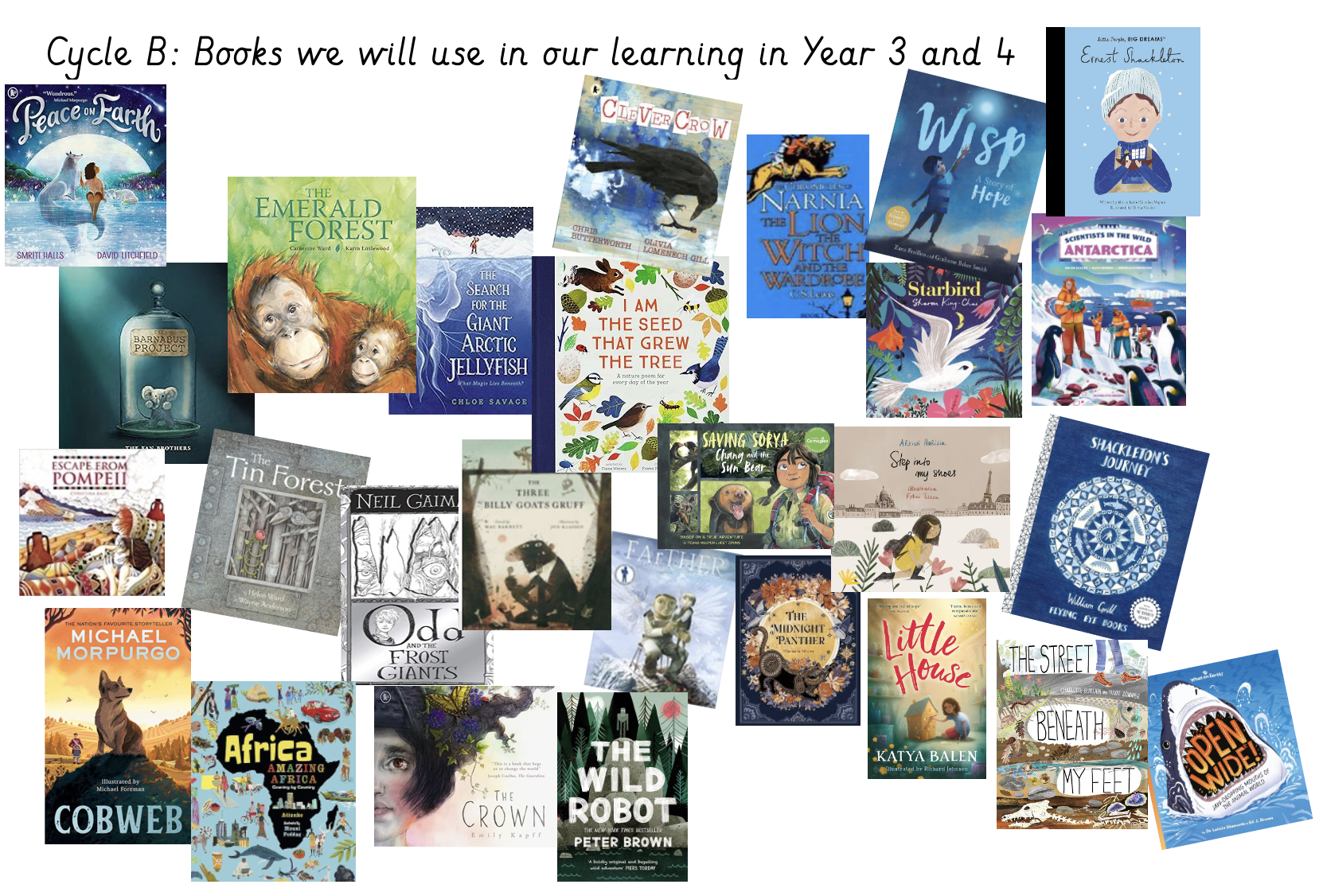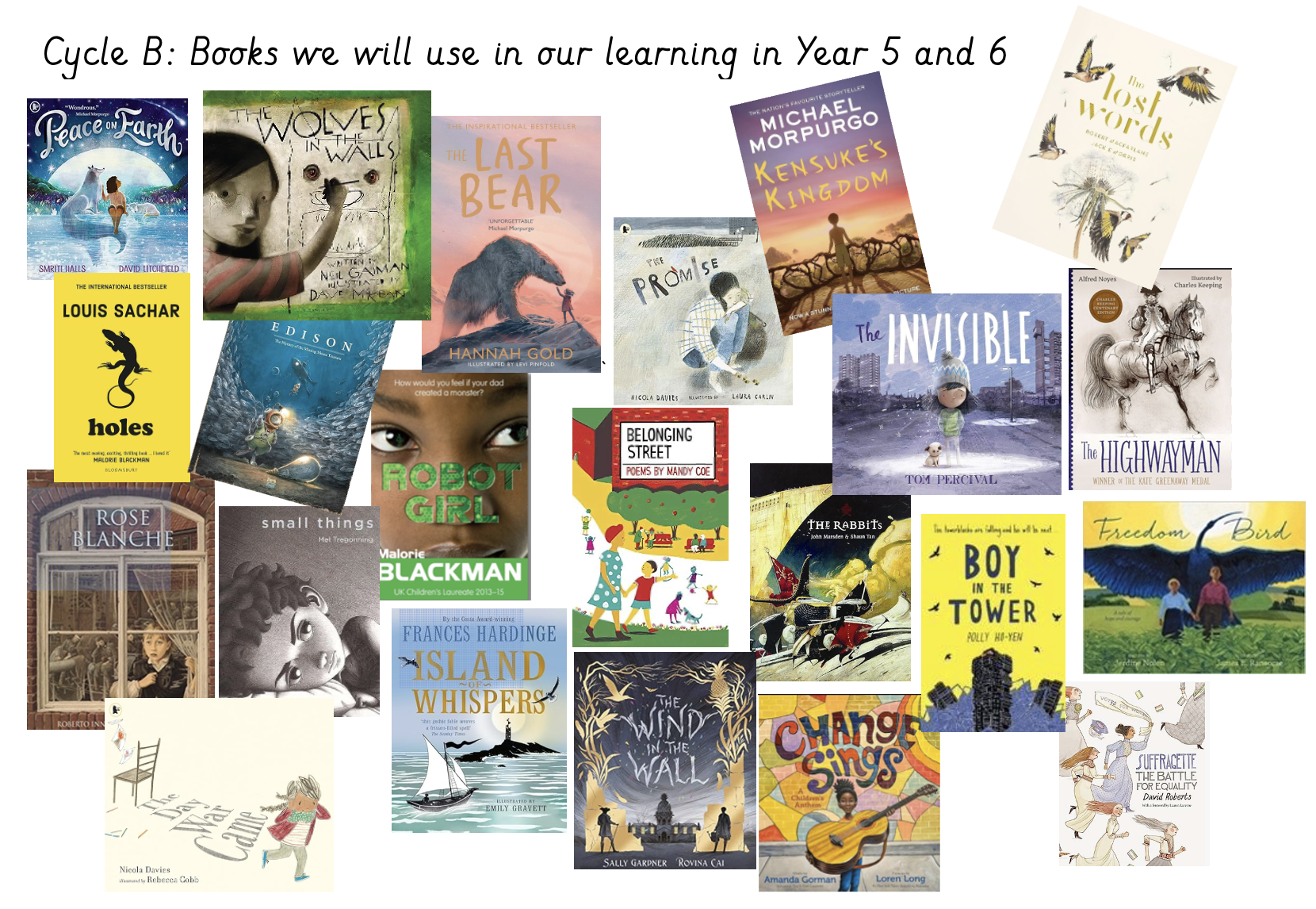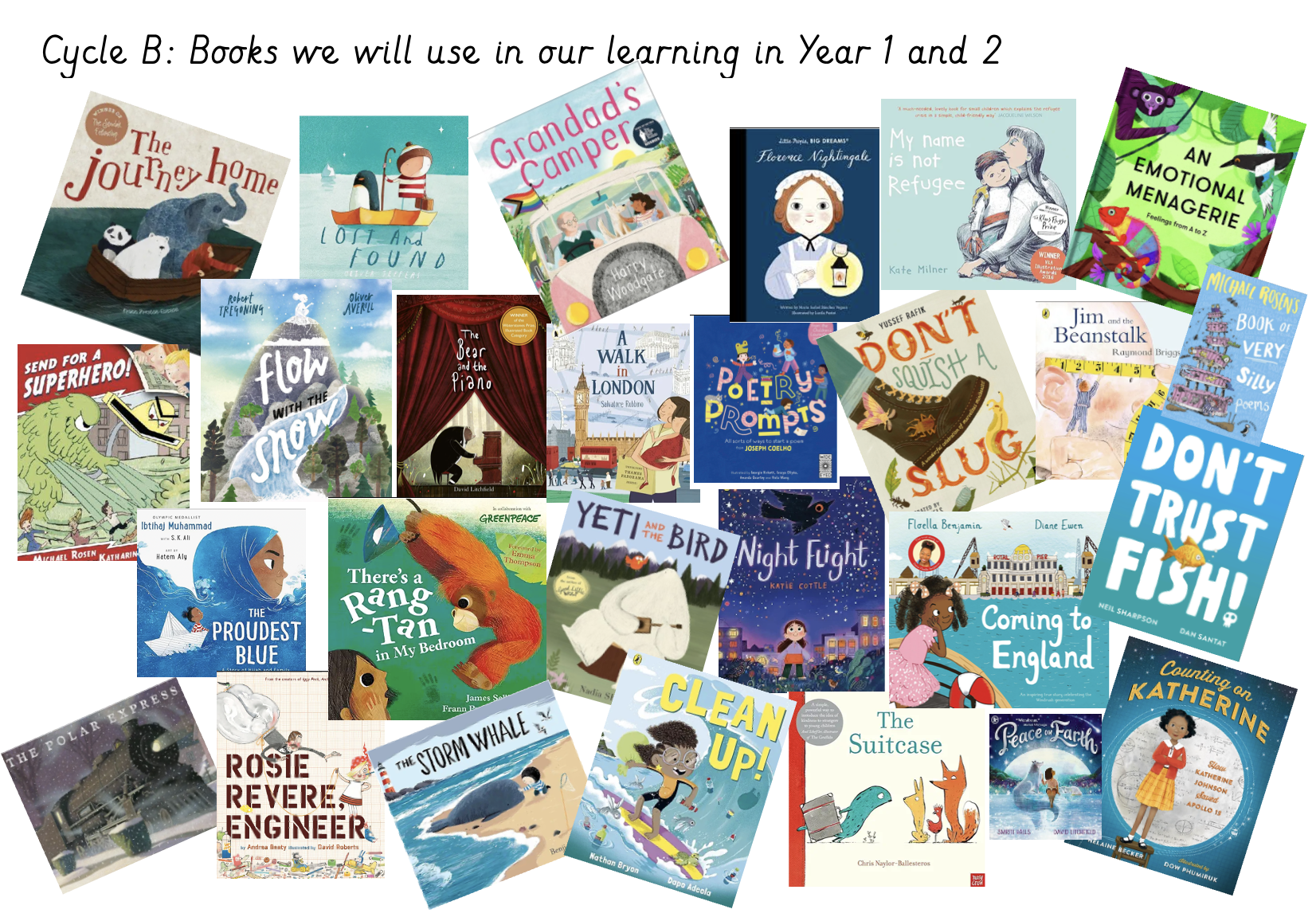English
At St Mary's, our aim is to ensure that we teach independent reading so that all children become confident, fluent and lifelong learners. The benefits of reading are vast. It helps us to discover new things, develops our minds and knowledge and extends and improves our spelling and vocabulary.
Our pupils are immersed in reading experiences each day, from listening to stories read by our staff and community members, 1:1 supported reading, guided reading sessions that develop specific skills and knowledge or giving our children time to simply read for pleasure. Our pupils have a good understanding of the texts they read as a result of dedicated weekly vocabulary lessons where a range of unusual and complex words are explored by the whole school. Children love to read and have adventures in the worlds of fact and fiction. St Mary's reading opportunities engage, challenge and promote a love of learning and discovery.
We have book spines per class, and these spines contain books we will explore as a class through our writing units, whole class guided reading, reading through our foundation subjects or reading for pleasure.


Reading Scheme
At St Marys CE Primary School we promote a 'phonics first' approach and in both our guided reading sessions at school and in the books children take home, texts are very closely matched to a child's current phonics knowledge so that every child can experience real success in their reading. In these crucial early stages of reading we primarily use books from Ransom Reading Stars Phonics, to ensure complete fidelity to the Unlocking Letters and Sounds progression we follow - more information on our phonics and early reading scheme can be found on the phonics curriculum page.
Reading at home
Encouraging your child to read at home for 10 – 15 minutes a day can make a real difference to their reading development. Listening and supporting your child with their reading will aid their progress, helping them to become successful learners.
Remember to challenge their understanding of what they have read. At school we use VIPERS to support children's comprehension of the books and text that they are reading
V-Vocabulary
I-Infer
P-Predict
E-Explain
R-Retrieve
S-Sequence
Talk to your child about their book and ask questions. Get them to make predictions and reflect upon what they have read e.g.
- Which character did you like/dislike? Why?
- Why do you think the character was happy/sad?
- Why did the author choose the word…?
- What emotions did you feel when reading the story? why?
We ask that you listen to your child read at least 4/5 times a week, recording your comments in their reading record book. This is a very important part of communication between home and school learning.
Vocabulary
Vocabulary plays a crucial role in making yourself understood, expressing your ideas and understanding new learning. There is much research undertaken into vocabulary and its importance in securing high future outcomes.
Each class spends dedicated time each week learning new vocabulary. This could be through acting them out, talking them through and writing with them. They have to read and recognise them, understand their meaning and apply them to create different sentences.
How do we build talking and listening into all activities across the whole day?
- Class discussions, story time sessions, circle time, PSHE lessons and 'talk partners' are all opportunities for pupils to build talking and listening skills.
- Whole class reading lessons take place from Year 3 to Year 6 and where appropriate in Year 1 and Year 2, giving many opportunities for pupils to listen, build vocabulary and talk about texts.
- Where teachers have concerns regarding a child's speech and language skills, discussion is had between the school and home and advice is sought from the SENDCo. A referral to an external agency is made, if necessary.
- Teachers may use 'talk partners' in lessons.
Writing
At St Mary's, children develop their writing skills through well planned sequences of lessons with engaging texts at the heart of lessons. These provide real purpose and audience for the children to write in a range of genres and practise skills in context. From opportunities to write emails to Superheroes to request their help, job advertisements for NASA engineers, to creating their own versions of the magical world of Narnia, the excitement never ends!
We encourage children to think like a writer: ‘why has the author used this device?’, ‘What effect does it have?’ and ‘How does it draw the reader in?’
Children have regular engaging spelling lessons which aim to build upon their phonic knowledge, teach alternative sound patterns, statutory words, common exceptions and topic based vocabulary. Each week children are explicitly taught weekly spelling patterns and receive spellings, following these patterns to practise at home. Children are actively encouraged to investigate and explore patterns and find additional spellings which fit the focus for themselves.
An essential part of a lesson is teaching the children various strategies and methods which will help them to learn spelling, such as mnemonics, learning rules, breaking into syllables, highlighting the difficult part to focus on, or the ‘look, say, cover, write, check’ approach. Please see documents below for further support on learning spellings.
At St Marys CE Primary School we believe SPAG is an essential part of the English Curriculum, ensuring all children develop the necessary skills to express themselves coherently and communicate effectively. Spelling, Punctuation and Grammar (SPAG), is taught both discreetly and, embedded within our high quality book based English units of work, thus ensuring children are continually building upon and consolidating their learning.
Here is our overview of Literacy Texts, many being from Literacy Tree, which support our writing.
Spelling
At St Marys CE Primary school we follow the Herts for Learning, ESSENTIALSpelling scheme.
ESSENTIALspelling is a whole class approach to teaching spelling that enables all children to succeed and gives teachers the unique tools to make that happen. ESSENTIALspelling teaches about the words rather than learning words from a list. It looks at the word construction rather than rote learning. It teaches the children knowledge and understanding of rules and patterns that they can then apply to spelling across the curriculum. ESSENTIALspelling focusses on how spelling needs to be valued, taught, talked about, practised, applied and revisited.
The lesson structure is similar to a phonics lesson in KS1. We believe ESSENTIALspelling gives an even higher priority to spelling and helps support all children to begin to understand HOW to spell. They do this not only through spelling rules, but games and activities with a practical approach.
If you would like to read more about ESSENTIALspelling you can follow this link: https://www.hfleducation.org/blog/introduction-essentialspelling-2021

